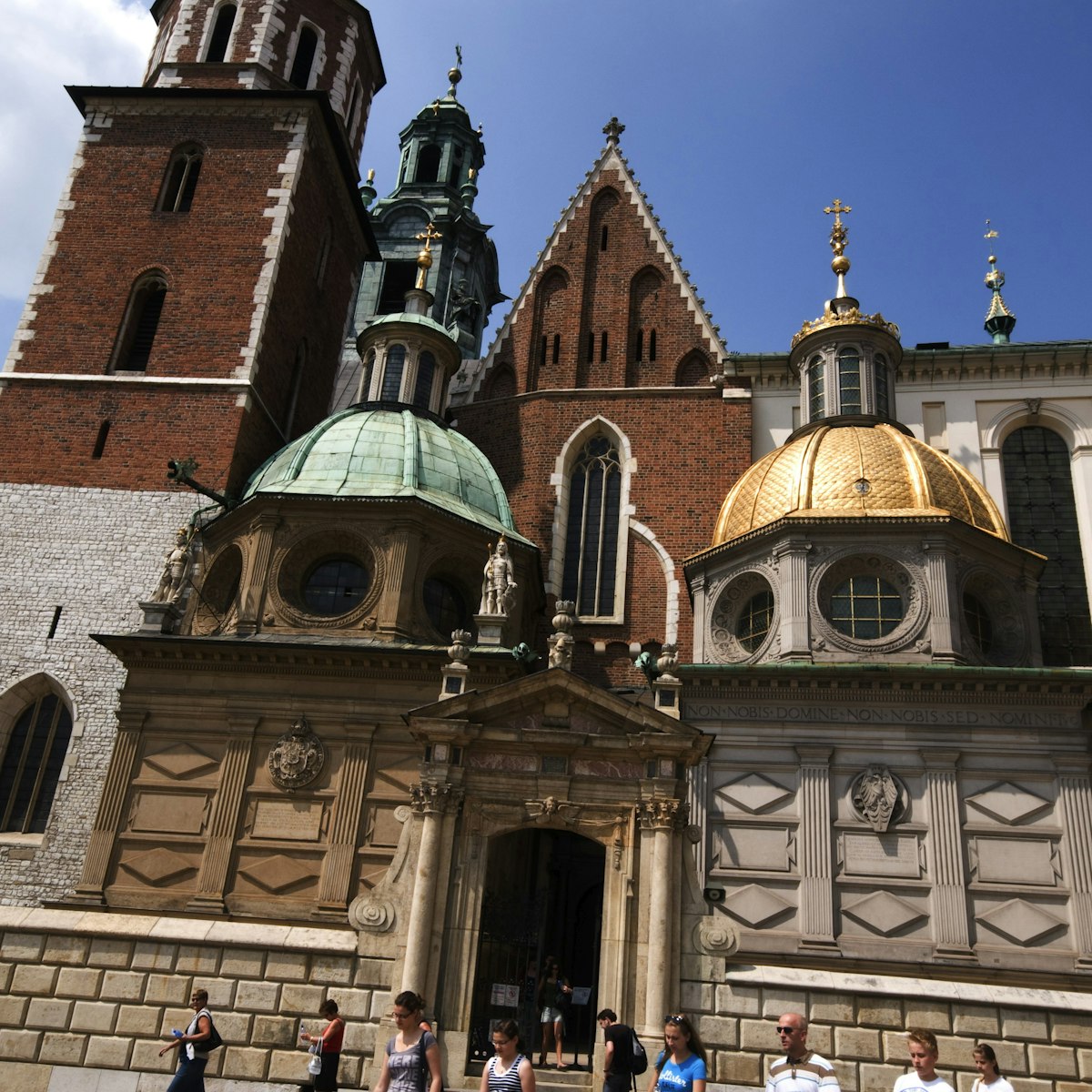As the political and cultural heart of Poland through the 16th century, Wawel Royal Castle is a potent symbol of national identity. It's now a museum containing five separate sections: Crown Treasury and Armoury, State Rooms, Royal Private Apartments, Lost Wawel and the Exhibition of Oriental Art. Each requires a separate ticket. Of the five, the State Rooms and Royal Private Apartments are the most impressive, but to be honest, the best part is just wandering around the castle grounds – open 6am to dusk.
The Renaissance palace you see today dates from the 16th century. An original, smaller residence was built in the early 11th century by King Bolesław I Chrobry. Kazimierz III Wielki (Casimir III the Great) turned it into a formidable Gothic castle, but when it burned down in 1499, Zygmunt I Stary (Sigismund I the Old; 1506–48) commissioned a new residence. Within 30 years, the current Italian-inspired palace was in place. Despite further extensions and alterations, the three-storey structure, complete with a courtyard arcaded on three sides, has been preserved to this day.
Repeatedly sacked and vandalised by the Swedish and Prussian armies, the castle was occupied in the 19th century by the Austrians, who intended to make Wawel a barracks, while moving the royal tombs elsewhere. They never got that far, but they did turn the royal kitchen and coach house into a military hospital and raze two churches. They also built a new ring of massive brick walls, largely ruining the original Gothic fortifications.
After Kraków was incorporated into re-established Poland after WWI, restoration work began and continued until the outbreak of WWII. The work was resumed after the war and has been able to recover a good deal of the castle’s earlier external form and interior decoration.








